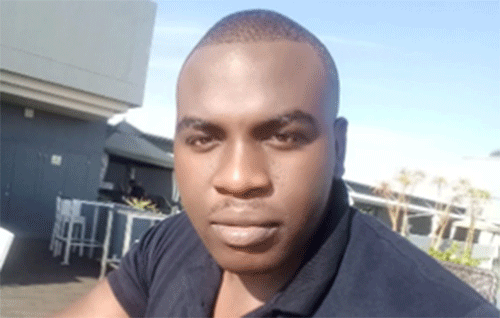Munyungano Musisanyani
Suicide is a global public health issue with devastating consequences, affecting individuals, families, and communities.
In Namibia, this crisis has taken on a particularly alarming dimension, with a rising incidence of suicide among men. Namibia is a diverse nation, however, beneath this exterior lies a deeply troubling issue that has garnered much attention in recent years, the alarming rate of suicide - with a significant majority of victims being men.
Between April 2020 and March, a staggering 1 542 Namibians lost their lives to suicide, painting a grim picture of the mental health crisis within the country. This means that on average, the country recorded over one suicide per day, with many victims, about 82% men (Karuuombe, 2023). This piece digs into the factors contributing to the high suicide rates in Namibia, with a specific focus on the male population, and explores potential strategies to address this pressing issue.
Understanding the crisis
Namibia’s suicide rate is a cause for significant concern, not only within the nation but also on the international stage. According to the United Nations, Namibia is among the countries in Africa with the highest suicide rates, a distressing reality that merits urgent attention. While suicide affects individuals of all ages and backgrounds, the statistics overwhelmingly reveal that men are bearing the brunt of this crisis.
Socio-economic factors
One of the critical factors contributing to high suicide rates among Namibian men is the challenging socioeconomic conditions that prevail in the country.
High levels of unemployment, poverty, and income inequality create a sense of hopelessness and despair, particularly among men who may feel a strong societal pressure to provide for their families. When faced with persistent economic struggles, men often internalize their failures and suffer silently, increasing their vulnerability to mental health issues.
Cultural and gender norms
Namibia, like many other countries, has traditional gender norms that place an emphasis on men as providers and protectors. These societal expectations can be overwhelming, leading men to feel isolated and emasculated when they are unable to meet these demands. The stigma surrounding mental health issues and the reluctance to seek help further exacerbate the problem. Men may be less likely to open up about their emotional struggles, viewing it as a sign of weakness, and instead resort to more destructive coping mechanisms, including suicide.
Limited mental health support
Another critical issue contributing to the high suicide rate among Namibian men is the limited availability of mental health services. Even when individuals recognize the need for help, access to mental health care can be a significant barrier. There is a shortage of mental health professionals, and services are often concentrated in urban areas, leaving rural communities underserved. The lack of awareness and understanding of mental health issues within the healthcare system and society at large further compounds this problem.
Addressing the crisis
Addressing the high suicide rate among Namibian men requires a comprehensive approach that encompasses both immediate and long-term strategies:
Raise awareness
Promoting awareness about mental health issues, reducing stigma, and encouraging open conversations about emotional well-being are crucial steps. Public awareness campaigns can help educate the population about the signs of depression and other mental health conditions, emphasising that seeking help is a sign of strength, not weakness.
Increase access to mental health services
Efforts should be made to expand the availability of mental health services, particularly in rural areas. This includes training more mental health professionals, establishing community based support systems, and utilising technology to provide telehealth services to those in remote regions.
Economic empowerment
Addressing the socioeconomic factors contributing to suicide rates among men necessitates a multi-pronged approach. Initiatives aimed at job creation, skills development, and poverty reduction can help alleviate some of the pressures faced by men.
Cultural sensitivity
Efforts to address the issue must also consider the cultural and gender norms in Namibia. Community leaders, elders, and religious institutions can play a pivotal role in promoting more inclusive and supportive environments where men feel comfortable seeking help.
To end, Namibia’s high suicide rate, with most victims being men, is a grave concern that demands immediate attention. Understanding the complex interplay of socioeconomic, cultural, and healthcare factors that contribute to this crisis is essential for developing effective strategies to combat it.
By raising awareness, increasing access to mental health services, addressing socio-economic challenges, and fostering cultural sensitivity, Namibia can work towards reducing its suicide rates and providing a brighter future for its people, especially its men who are disproportionately affected by this silent crisis


